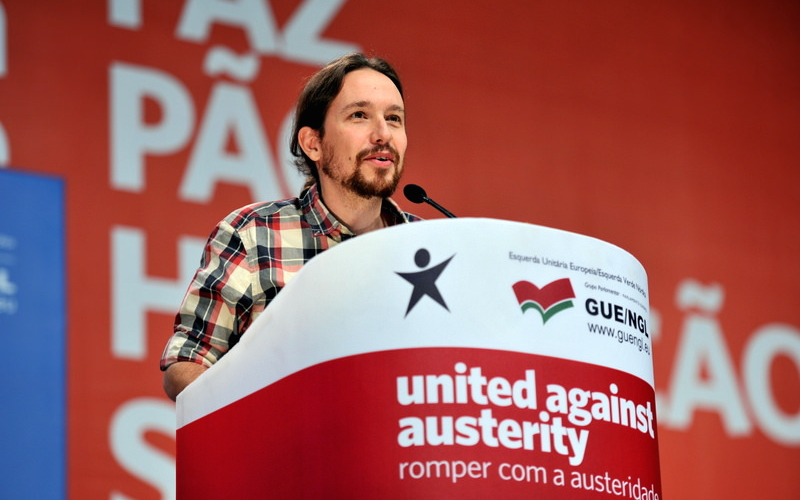
Podemos: We Can, But Should They?
“In Greece tonight you can hear tick-tock, tick-tock. Soon we want them to hear it in Spain as well.” These were the words of Pablo Igelsias, leader of Spain’s far-left anti-austerity Podemos (We Can) party at a rally in Valencia on January 25th according to The Guardian. Energized by the victory of Syriza in Greece’s elections on Sunday and the agenda of the new Greek Prime Minister, Alexis Tsipras, of debt relief and rolling back austerity, Iglesias is trying to make it clear to Spain’s political establishment that its days are numbered. Syriza’s victory has resonated across the Eurozone with many who are impatient with the sluggish growth which has plagued Europe since its double dip recession stemming from the 2008 financial crisis and the 2012 Euro crisis.
What is interesting about the Spanish case, however, is that the rise of Podemos comes on the heels of what could possibly be the beginning of Spain’s recovery. According to the OECD Spain’s GDP growth rate has been both positive and increasing since the 3rd quarter of 2013. The OECD data also reveals that for the 2nd and 3rd quarter of 2014 GDP growth has not only outpaced other economically distressed countries such as Italy, but Germany as well. Though Spain’s unemployment rate, at 24%, is the highest in the Eurozone behind Greece, Spain was able to create over 430,000 jobs in 2014, which many attribute to reforms put in place in 2013 which made the labor market less rigid, according to the Financial Times.
Podemos’ recent surge in popularity based on its grassroots economic populism might seem puzzling amidst the bright news. However, even if Spain continues to recover it will likely be years before this has a meaningful positive impact on everyday Spaniards.
This time gap between the first signs of recovery, the positive impact for workers, and renewed confidence in the economy can be observed in the case of the United States. Data from the Bureau of Labor Statistics shows that it took roughly five and half years for the national unemployment rate to return to 6.1%, the level it was in August of 2008 preceding the Global Financial Crisis.
The Gallup Daily U.S. Economic Outlook Poll indicates that it took until December of 2014 for more respondents to consistently report they believe the economy is getting better, than those reporting that it is getting worse. At the peak of the recession unemployment was 10% in the U.S., and Americans are just now beginning to become optimistic about their economic future. In Spain, with a current unemployment rate of 24% and only nascent recovery it is likely to take much longer for optimism to occur.
Podemos has been able to capitalize off the anxiety of the Spanish people rapidly since its founding just over a year ago. A recent poll taken by the newspaper El Pais found support for Podemos leading at 28.2%. As Podemos continues to consolidate electoral support it has caused the traditional political establishment to worry. While discussing Podemos in a speech at the Popular Party Convention, current Prime Minister Mariano Rajoy stated “We cannot gamble away our children’s future on a Russian roulette of frivolity, incompetence and populism.” This fear is becoming a legitimate possibility as a Spanish general election must be held sometime this year before the 20th of December.
Spaniards will be voting on two distinct economic models this year: The model of hard to swallow reform and slow growth of Mariano Rajoy and the Popular Party or the model of economic populism offered by Pablo Iglesias, who formerly worked for and openly praised the late Venezuelan President Hugo Chavez and his party according BBC News. The result will largely depend on how patient Spaniards will be with the pace of its recovery at the time elections are held. If the voters lack patience with Mariano Rajoy’s economic reforms then the “tick-tock” may indeed begin to sound across Spain.

